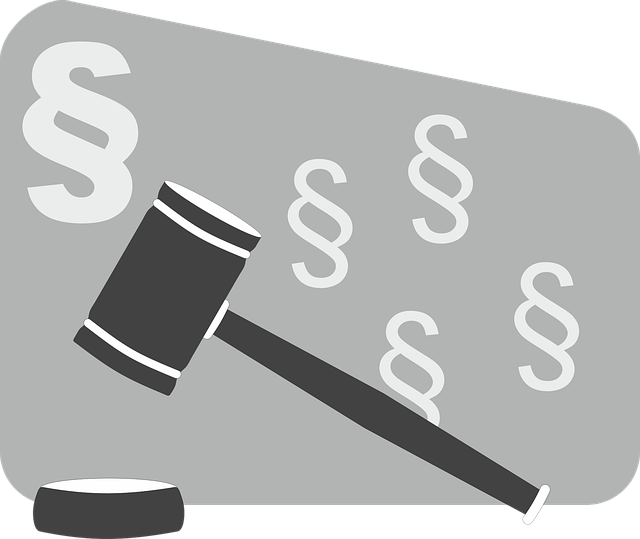Navigating plea bargains in felony cases, a strategic process, offers defendants potential to mitigate severe charges and sentences through cooperation with prosecutors. Skilled attorneys balance legal expertise and negotiation skills, guiding clients through complex agreements while protecting rights and business interests. This crucial aspect of criminal law impacts various sectors, aiding informed decisions regarding trial risks versus plea deals. Effective communication between accused and counsel is vital for navigating these bargains successfully.
In the intricate landscape of criminal law, navigating plea bargains in felony cases is a complex process. Regulatory fraud laws demand a deep understanding of the legal framework and strategic defenses. This article guides you through the critical aspects, from comprehending felony charges to negotiating plea deals, and their subsequent consequences. We explore effective communication with legal counsel as a key element in managing these cases. By delving into these topics, individuals can make informed decisions, ensuring they are well-prepared to face potential outcomes.
- Understanding Felony Cases and Their Impact
- Plea Bargains: A Strategic Approach to Defense
- The Legal Framework for Negotiation and Acceptance
- Consequences of Accepting a Plea Deal
- Effective Communication with Legal Counsel
Understanding Felony Cases and Their Impact

Navigating plea bargains in felony cases can be a complex and crucial aspect of criminal law. Felony charges carry significant consequences, often including lengthy prison sentences and substantial fines. Understanding the dynamics of plea bargains is essential for both defendants and their legal representatives. When facing felony accusations, individuals must appreciate that a negotiated plea bargain might offer a more favorable outcome than going to trial. This strategy, while not guaranteeing a complete dismissal of all charges, can lead to reduced sentences or lighter penalties.
Defendants who opt for plea bargains may be able to achieve extraordinary results, especially when presenting strong defenses. Skilled attorneys can negotiate with prosecutors, advocating for their clients’ rights and interests. The goal is often to reach an agreement that results in a winning challenging defense verdict, where the defendant pleads guilty to a lesser charge or receives a more lenient punishment than initially sought by the prosecution. This process requires strategic planning, thorough knowledge of the law, and a deep understanding of the court’s expectations.
Plea Bargains: A Strategic Approach to Defense

Navigating Plea Bargains in Felony Cases is a strategic move for defendants facing serious criminal charges, particularly in white-collar crimes. This process allows individuals to mitigate potential consequences by cooperating with prosecutors. When negotiating a plea bargain, defendants can expect to plead guilty or no contest to reduced charges, which may result in a lighter sentence or even the complete dismissal of all charges.
The strategic approach involves understanding the respective business and legal implications. Defense attorneys play a crucial role in advising clients on the benefits and risks. A well-crafted plea bargain can protect businesses from severe penalties and reputational damage while ensuring that justice is served.
The Legal Framework for Negotiation and Acceptance

Navigating plea bargains in felony cases involves a complex interplay between legal strategy and strategic negotiation. The legal framework is designed to balance the rights of defendants with the need for justice and public safety. In many jurisdictions, plea agreements are a cornerstone of criminal procedure, allowing for more efficient case management and potentially reducing the strain on the judicial system. This approach has proven particularly beneficial in high-stakes cases where an unprecedented track record of successful prosecution or defense strategies can influence outcomes.
When discussing plea bargains, it’s crucial to understand that the process begins with negotiations between the prosecutor and the defendant’s attorney. These discussions are typically focused on reaching a mutually acceptable agreement regarding charges, sentencing, and other terms. A successful bargain not only requires clear communication but also an understanding of the legal implications for both parties. Defendants must be fully apprised of their rights, while prosecutors must ensure that any negotiated plea aligns with the evidence and serves the public interest. This strategic navigation demands expertise in criminal law and a keen awareness of the potential consequences at every stage, from initial negotiations to final acceptance or rejection by the court.
Consequences of Accepting a Plea Deal

Navigating plea bargains in felony cases can be a complex and significant decision for both corporate and individual clients alike, as the consequences can have far-reaching implications across the country. When faced with a felony charge, defendants often find themselves at a crossroads, considering whether to accept a plea deal or go to trial. Accepting a plea bargain typically involves pleading guilty to a lesser charge or agreeing to a specific sentence in exchange for avoiding a potential more severe outcome at trial.
While this strategy can offer some certainty and potentially shorter prison sentences or reduced fines, it also comes with its share of drawbacks. Plea deals often result in a guilty verdict de facto, which can impact future opportunities and reputation. In high-stakes cases, these decisions can affect not only the defendant’s life but also that of their families and associated businesses, especially when corporate entities are involved. Therefore, it’s crucial to carefully weigh the benefits against the potential long-term repercussions when navigating plea bargains in felony cases.
Effective Communication with Legal Counsel

Effective communication between individuals accused of regulatory fraud and their legal counsel is a cornerstone of navigating plea bargains in felony cases. This strategic partnership ensures that all stages of the investigative and enforcement process are understood, allowing for informed decision-making. Counsel must clearly explain complex legal concepts and potential outcomes, empowering clients to make sound choices throughout the proceedings.
By fostering open dialogue, lawyers can identify the best course of action, whether negotiating a plea deal or pursuing a jury trial. This communication is vital for his clients’ interests, as it helps them grasp the risks and benefits associated with different legal strategies. Ultimately, this collaborative approach facilitates a more effective defense and increases the chances of favorable outcomes in felony cases involving regulatory fraud.
Navigating plea bargains in felony cases requires a strategic understanding of regulatory fraud laws and their impact. By delving into the legal framework, consequences, and effective communication with counsel, individuals can make informed decisions that may significantly shape their future. While plea deals offer a path to resolution, it’s crucial to remember that each case is unique; thus, tailored strategies are essential for successful navigation through this complex process.






